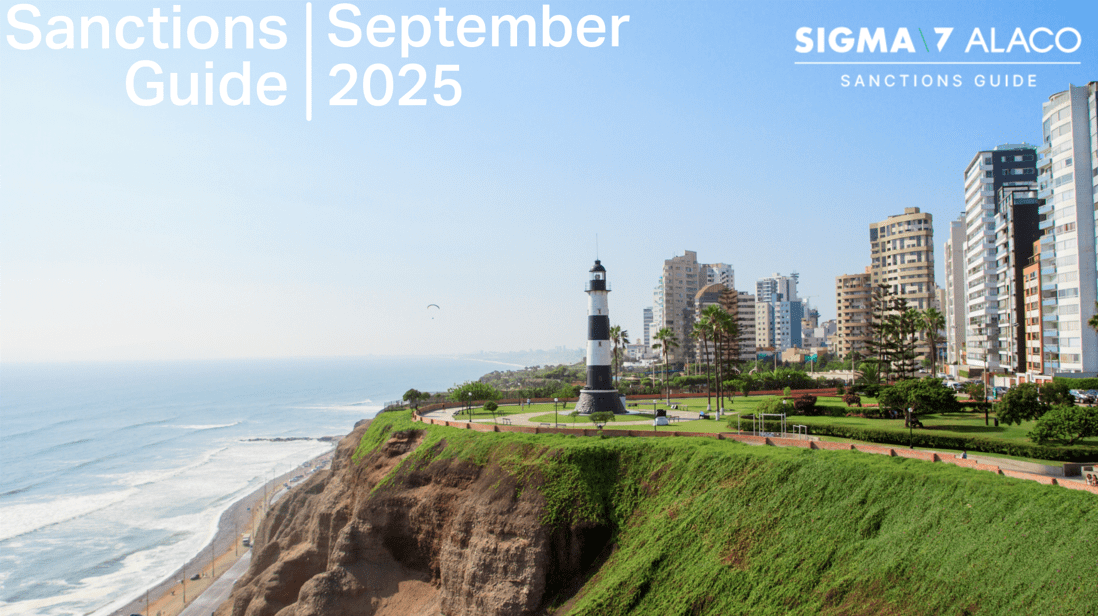In the Middle East, September’s sanctions activity was led by the UN’s reimposition of sanctions on Iran following the activation of the Joint Comprehensive Plan of Action (“JCPOA”) snapback mechanism, following which the UK and EU also reinstated sanctions. The US took significant unilateral action, including sanctions on an Iraqi-Kittitian businessman and a network smuggling Iranian oil, as well as on members of Iran’s shadow banking system and four Iranian-backed militias. Senator Ted Cruz also introduced a bill to restrict entry to sanctioned Iranian officials ahead of the UN General Assembly. Elsewhere in the Middle East, the US targeted three Palestinian NGOs and Houthi networks in Yemen. A new rule was also implemented updating the Syria sanctions regime under the new title ‘Promoting Accountability for Assad and Regional Stabilisation Sanctions.’
Designation activity globally remained robust. The UK sanctioned dozens of Russian-linked vessels, entities, and individuals involved in military support and propaganda in occupied Ukraine, while the EU extended Russia-related sanctions through March 2026 and imposed new human rights sanctions on Russian prison officials in Crimea. The US maintained its focus on counter-narcotics and counter-terrorism, sanctioning individuals and entities involved in fentanyl and synthetic opioid trafficking, as well as designating Antifa a terrorist group. Sanctions were also issued against cyber-enabled scam networks in Southeast Asia, including actors tied to the Karen National Army.
In terms of regulatory and enforcement developments, the EU proposed its 19th sanctions package, which included a ban on Russian LNG, and financial restrictions on Russian banks and crypto networks. Separately, the EU and UK approved the imposition of a lowered oil price cap to $47.60, which was also adopted by Australia and Japan, but not the US. Sanctions on Sudan were extended by both the UN and EU, while delistings occurred in Guinea-Bissau and Burundi. Enforcement actions included US fines against Fracht FWO Inc and crypto firm ShapeShift AG for violations of Iran, Syria, and Venezuela sanctions. Several high-profile EU de-listing applications—including those by Alisher Usmanov and Roman Abramovich—were rejected, though the court annulled the listing of a former Ukrainian MP due to outdated evidence.
Middle East
- Sanctions news this month was dominated by the reimposition of UN sanctions on Iran following the conclusion of the snapback mechanism, which had seen sanctions suspended upon the adoption of the JCPOA. This has resulted in the reinstatement of asset freezes on individuals and entities involved in Iran’s nuclear and ballistic missile programmes as well as on banks linked to the IRGC, and bans on Iranian arms exports and the sale of heavy conventional weapons.
- On 2nd September OFAC sanctioned Iraqi-Kittitian businessman Waleed al-Samarra’I and his network of seven shipping companies and nine vessels for smuggling Iranian oil disguised as Iraqi oil. Later in the month, OFAC also designated a further four individuals based in the UAE and 12 entities belonging to Iran’s shadow banking network and proscribed four Iran-backed militias as foreign terrorist organisations.
- Ahead of the UN General Assembly, Senator Ted Cruz introduced a bill to ban sanctioned Iranian officials from entering the US, which would usually be allowed under the US-UN Headquarters Agreement.
- Elsewhere in the Middle East, the US State Department designated three NGOs – Al Haq, Al Mezan Center for Human Rights, and the Palestinian Centre for Human Rights – under its ICC sanctions regime for engaging in ICC’s efforts to detain and prosecute Israeli nationals without Israel’s consent. OFAC also sanctioned 11 people, 21 entities, and 4 ships involved in illicit fundraising, smuggling, and weapons procurement for Yemen’s Houthis. These actions constitute the US’s largest Houthi-related sanctions package to date.
- Finally, in late September, OFAC published a final rule implementing changes to its Syria sanctions regimes. Under this rule, the title of the sanctions was changed to ‘Promoting Accountability for Assad and Regional Stabilisation Sanctions’ (PAARSS).
Designations
- The UK continued to take action against Russia this month, sanctioning 70 vessels, 27 entities, and 3 individuals for their support of the Russian military and involvement in Russia’s oil industry. OFSI also designated eight people and three entities involved in implementing russification policies in occupied territories of Ukraine, including the deportation and indoctrination of Ukrainian children. Further action was taken against six Georgian nationals, entities, and vessels for their links to Russia and involvement in disinformation campaigns.
- The EU meanwhile extended sanctions against Russia until March 2026, maintaining pressure on over 2,500 individuals and entities sanctioned via its regimes. The EU further designated two individuals under its global human rights sanctions regime – the head and deputy-head of the Directorate of the Russian Federal Penal Enforcement Service for Sevastopol & Crimea – for human rights abuses in Crimea.
- Counter-narcotics and counter-terrorism sanctions remain a high priority in the US. OFAC imposed entry bans on two Montenegrin officials said to be involved in corruption that enabled drug trafficking; bans were also imposed on members of their immediate family. Sanctions were also applied on two Indian nationals for fentanyl trafficking, as well as Chinese chemical company Guangzhou Tengyue Chemical Co Ltd and its two representatives, found to be manufacturing and selling synthetic opioids. Other counter-narcotics and counter-terrorism designations made by OFAC included the Los Mayos faction of the Sinaloa Cartel and the leader of Los Rugrats gang in Mexico, and Barrio 18, a gang operating across El Salvador, Guatemala, and Honduras. In notable domestic news, Trump signed an executive order designating Antifa a terrorist organisation for its actions to overthrow the US government.
- The US also took action against scam centres across Southeast Asia this month, sanctioning seven people and 12 entities involved in malicious cyber-enabled activities. These designations included individuals and entities with ties to the sanctioned Karen National Army.
Regulatory Updates
- September saw the arrival of the EU’s proposed 19th sanctions package, spanning a ban on Russian LNG imports until January 2027, bans on transactions involving Rosneft and Gazpromneft, and sanctions on cryptocurrency networks and Russian banks using alternative payment systems, among other restrictions. The EU also lowered the price cap on Russian crude oil from $60 per barrel to $47.60 in alignment with the UK. The regulation is due to be reviewed in April 2026. This move was subsequently adopted by other countries including Australia and Japan, although notably not the US.
- The UN renewed its sanctions regime against Sudan for another year, extending targeted measures against individuals and entities undermining peace in Darfur and an arms embargo on non-governmental entities and individuals in Darfur. The EU similarly agreed to extend its Sudan sanctions list until October 2026. Elsewhere in Africa, the EU removed all entries from its Guinea-Bissau and Burundi sanctions lists, although the regimes remain active.
Enforcement
- On 3rd September OFAC announced that Texan freight forwarding company Fracht FWO Inc agreed to pay $1.6 million to settle its liability for violations of sanctions against Venezuela and Iran. The company had contracted an aircraft charter to ship vehicle components between Mexico and Argentina; the chartered aircraft was wholly owned by a designated Venezuelan state-owned airline and previously owned by Mahan Air, an airline also designated for supporting Iran’s Revolutionary Guard Corps, for which the aircraft remained sanctioned.
- OFAC additionally announced a settlement this month with ShapeShift AG, a digital asset exchange that was found to have violated sanctions on Cuba, Iran, Sudan, and Syria. The company was fined $750,000 for not screening sanctioned users or maintaining a sanctions compliance programme, resulting in tens of thousands of violations of sanctions regimes between 2016 and 2018.
- The UK issued a disclosure notice against Vanquis Bank, which was found to have allowed a sanctioned individual access to their bank account for eight days after their designation. OFSI ruled that while a monetary penalty was not necessary, a warning letter would be too lenient.
- In Europe, Luxembourg’s financial services regulator issued a EUR 214,000 fine to digital payment platform Alipay (Europe) SA after an inspection revealed breaches of anti-money laundering and counter-terrorist financing laws. Estonian authorities meanwhile extradited Andrey Shevlyakov to the US to face charges of exporting US-made electronics and technology for the Russian government.
- September saw several notable delisting applications. The EU’s General Court dismissed Alisher Usmanov’s de-listing application, finding him to meet the definition of a leading businessperson operating in Russia through his 49% stake in USM Holding, a major mining and telecoms operator. The EU also rejected delisting applications for former Ukrainian president Viktor Yanukovych and his son Oleksandr for their support of Russian politicians in Crimea and business activities in the Donbas region; Roman Abramovich’s de-listing application was also rejected on the grounds of his continued influence in Russian politics, ties to Putin, and involvement in income generating activities for the Russian government. It also ruled inadmissible an application to annul to the EU’s decision to prohibit Russian-flagged historical vessels from accessing EU ports and locks. The EU General Court nevertheless annulled the September 2024 listing of former pro-Russian Ukrainian MP Vyacheslav Boguslayev for outdated evidence. Similarly the US removed Iryna Litviniuk from its Global Magnitsky sanctions list and Mosbah Mohamed Wadi from its Libyan sanctions regime.


